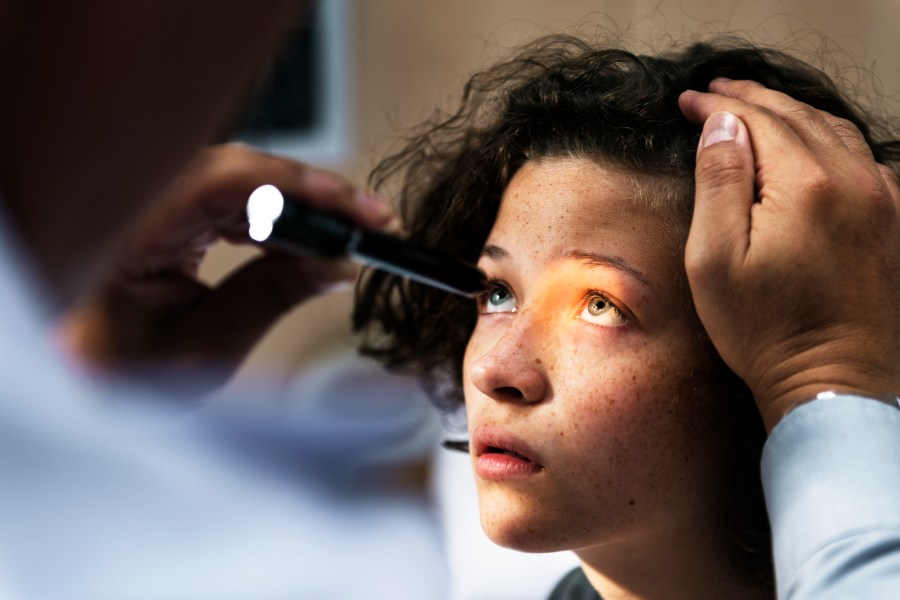Tampa (BLOOM) – Our eyes are precious, allowing us to experience the world around us. Maintaining good eye health is crucial for a fulfilling and independent life. Understanding the factors affecting eye health and implementing these strategies will help you maintain optimal visual well-being and reduce the risk of eye-related problems.

Understand the Factors Affecting Eye Health
When it comes to eye health, several factors come into play. These include genetics and family history, aging, environmental factors, and lifestyle choices. While some factors are beyond our control, we can still take proactive steps to minimize their impact on our eyes.
Top Strategies for Preserving Eye Health
- Schedule Regular Eye Exams
Regular eye exams are essential for maintaining good eye health. Comprehensive eye exams can detect early signs of eye conditions, even before noticeable symptoms appear. The frequency of eye exams varies based on age and individual risk factors. By catching issues early, you can seek appropriate treatment and prevent further deterioration.
- Follow a Healthy Diet for Eye Health
A well-balanced diet rich in eye-healthy nutrients is crucial for maintaining optimal vision. Key nutrients for eye health include Vitamin A, C, E, and omega-3 fatty acids. Incorporate foods such as leafy greens, citrus fruits, fish, and nuts into your diet to ensure you’re getting these essential nutrients.
- Practice Eye-Friendly Habits
Our modern lifestyle often involves prolonged screen time, which can strain our eyes. To mitigate the effects, follow these eye-friendly habits:
- Take regular breaks during visually demanding tasks, following the 20-20-20 rule (every 20 minutes, look at an object 20 feet away for 20 seconds).
- Ensure proper lighting and reduce glare on screens by adjusting brightness and using anti-glare filters.
- Maintain a proper distance from screens and position them slightly below eye level to reduce eye strain.
- Protect Your Eyes from UV Radiation
Prolonged exposure to ultraviolet (UV) radiation can harm your eyes. Protect them by:
- Wearing sunglasses with UV protection when outdoors, even on cloudy days.
- Using broad-brimmed hats or visors for added sun protection.
- Avoiding excessive sun exposure, especially during peak hours when UV rays are strongest.
- Practice Good Hygiene to Prevent Eye Infections
Practicing good hygiene can prevent eye infections, which can lead to discomfort and vision problems. Follow these habits:
- Wash your hands thoroughly before touching your eyes or handling contact lenses.
- Adhere to proper contact lens care and hygiene, including regular cleaning and disinfection.
- Avoid sharing personal eye-related items, such as towels or makeup brushes, to minimize the risk of infection.
- Quit Smoking and Reduce Alcohol Consumption
Smoking poses significant risks to eye health, increasing the likelihood of developing age-related macular degeneration, cataracts, and optic nerve damage. Similarly, excessive alcohol consumption can lead to eye problems. Quitting smoking and reducing alcohol intake will benefit not just your eyes, but your overall health as well.
- Exercise Regularly for Overall Health and Eye Benefits
Regular exercise promotes good circulation, which benefits your eyes. Engaging in physical activity reduces the risk of eye conditions such as glaucoma and age-related macular degeneration. Aim for at least 30 minutes of moderate exercise most days of the week to enjoy the eye health benefits that come with an active lifestyle.
Early Detection and Treatment
Recognizing the signs and symptoms of eye problems is crucial. If you experience vision changes, eye pain, persistent redness, or any other concerning symptoms, seek prompt medical attention. Early detection and timely treatment can prevent further damage and preserve your vision.
Protecting your vision should be a priority. By understanding the factors affecting eye health and implementing these strategies, you can safeguard your eyes and reduce the risk of eye-related problems. Remember to schedule regular eye exams, maintain a healthy diet, practice eye-friendly habits, protect your eyes from UV radiation, practice good hygiene, quit smoking, reduce alcohol consumption, and exercise regularly. By taking these steps, you are investing in your long-term visual well-being and enjoying a brighter future with healthy eyesight.














